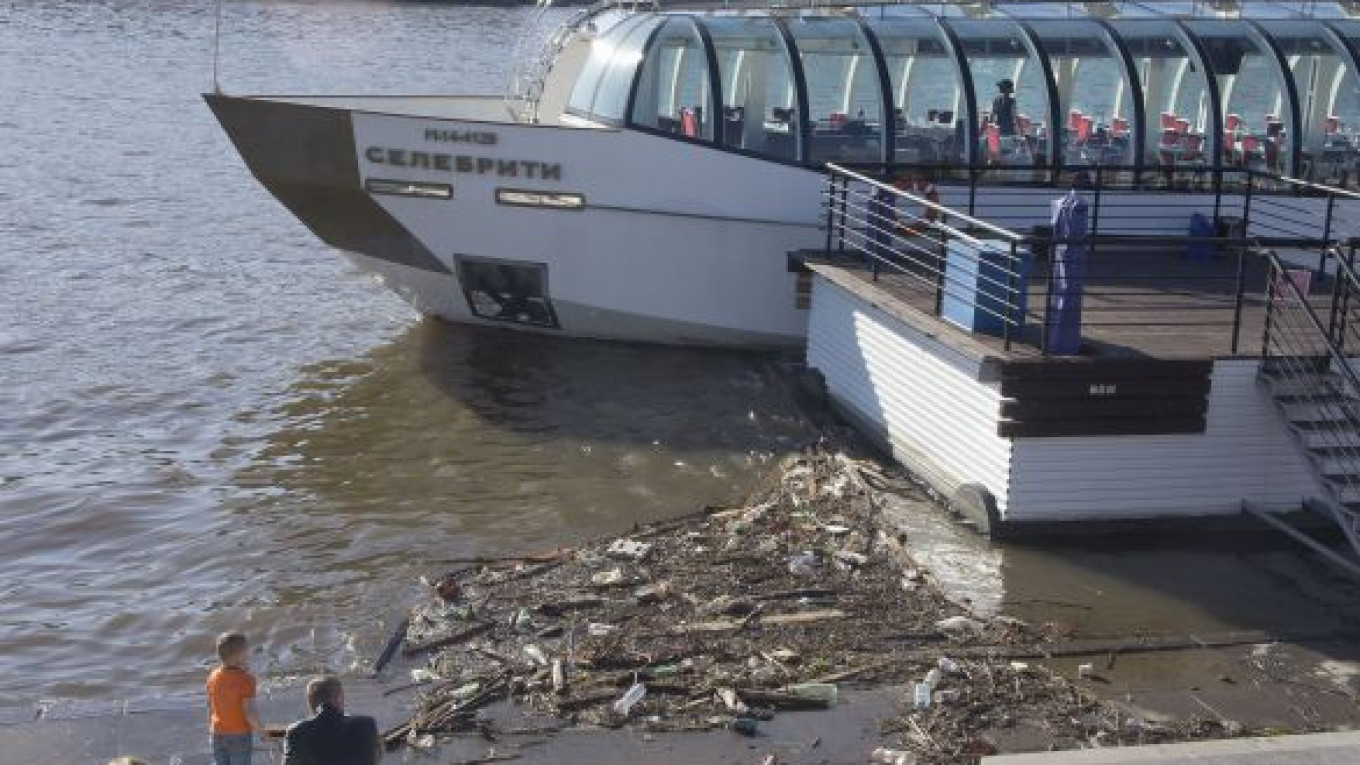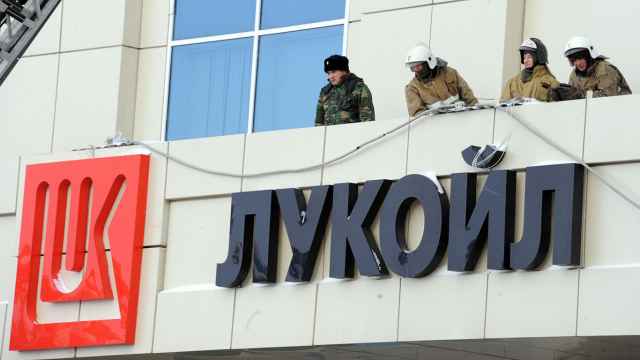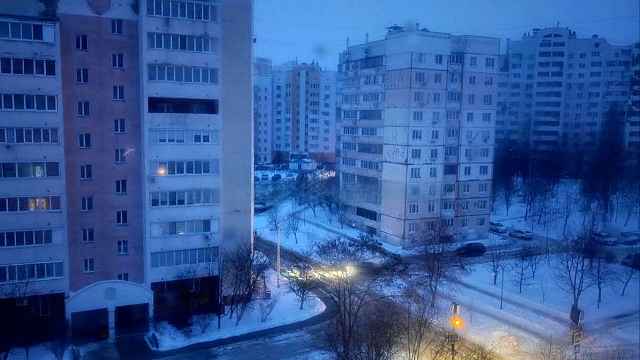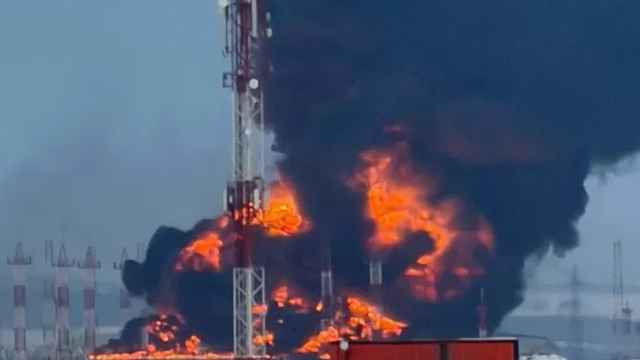The quantity of industrial pollutants in the Moscow River significantly exceeds safety standards, according to a study by Greenpeace Russia.
These pollutants, which include sulfur, oil, heavy metals and aluminum, are deemed a risk not only to the local ecosystem but also to people's health according to the study, which was released this week.
Greenpeace tested samples of the Moscow River taken in June from 10 locations south of the Kremlin. All of the samples showed that the capital had excessive levels of pollutants. In one test, location mercury levels exceeded Russia's water safety standards by 20 times. In another, manganese surpassed these levels by 120 times.
The substances pose a health risk if they get into the drinking water. This will not happen in Moscow because the reservoirs that supply the city with water, like those near Istra and Pushkino, are west and north of the city and either relatively far from the Moscow River or take water from the river at its cleaner, upstream locations, said Dmitry Artamonov, head of the toxic program at Greenpeace Russia.
However, cities on the Oka and Volga rivers, which the Moscow River drains into, are at risk. These include Ulyanovsk, Samara, Astrakhan, Nizhny Novgorod, Volgograd, Ryazan and Murom.
River pollution, though typical in large cities, is not as severe in Europe as it is in Russia, Artamonov said. Though he could not compare numbers, Artamonov said European rivers are likely cleaner because local manufacturers have stopped using the most dangerous toxic chemicals in their production cycles.
"The Russian government doesn't do anything to encourage or force manufacturers to curb their toxic pollution," Artamonov said. "It is only when ecological needs coincide with economic imperatives that the enterprises do anything."
Greenpeace carried out a similar study in St. Petersburg's Neva River last year. There were more toxic substances found in the Neva than in the Moscow River, likely because of the greater number of industrial enterprises along its banks, Artamonov said.
The Volga and Amur rivers also have more toxic substances than the Moscow River.
Contact the author at [email protected]
A Message from The Moscow Times:
Dear readers,
We are facing unprecedented challenges. Russia's Prosecutor General's Office has designated The Moscow Times as an "undesirable" organization, criminalizing our work and putting our staff at risk of prosecution. This follows our earlier unjust labeling as a "foreign agent."
These actions are direct attempts to silence independent journalism in Russia. The authorities claim our work "discredits the decisions of the Russian leadership." We see things differently: we strive to provide accurate, unbiased reporting on Russia.
We, the journalists of The Moscow Times, refuse to be silenced. But to continue our work, we need your help.
Your support, no matter how small, makes a world of difference. If you can, please support us monthly starting from just $2. It's quick to set up, and every contribution makes a significant impact.
By supporting The Moscow Times, you're defending open, independent journalism in the face of repression. Thank you for standing with us.
Remind me later.






